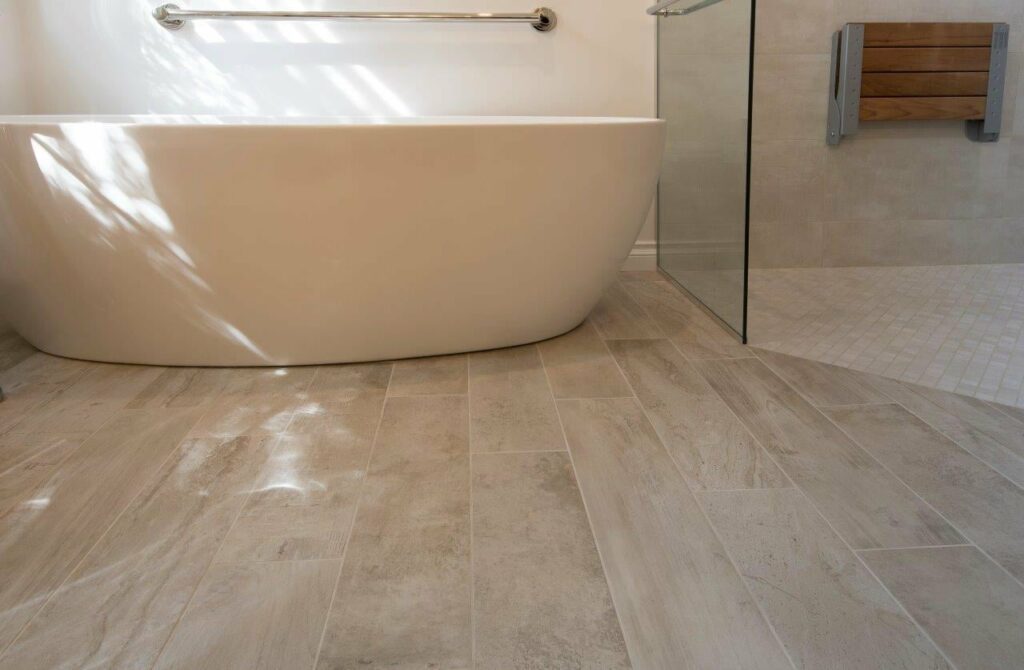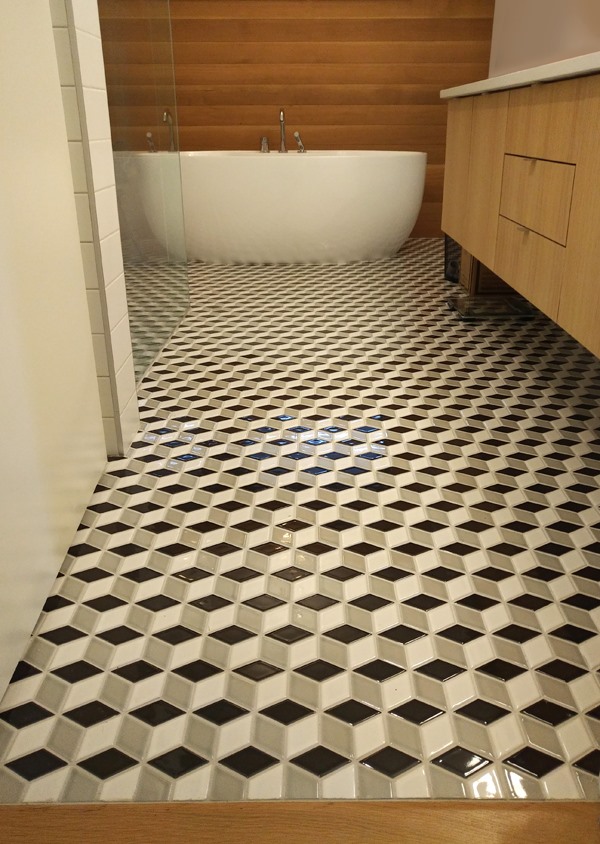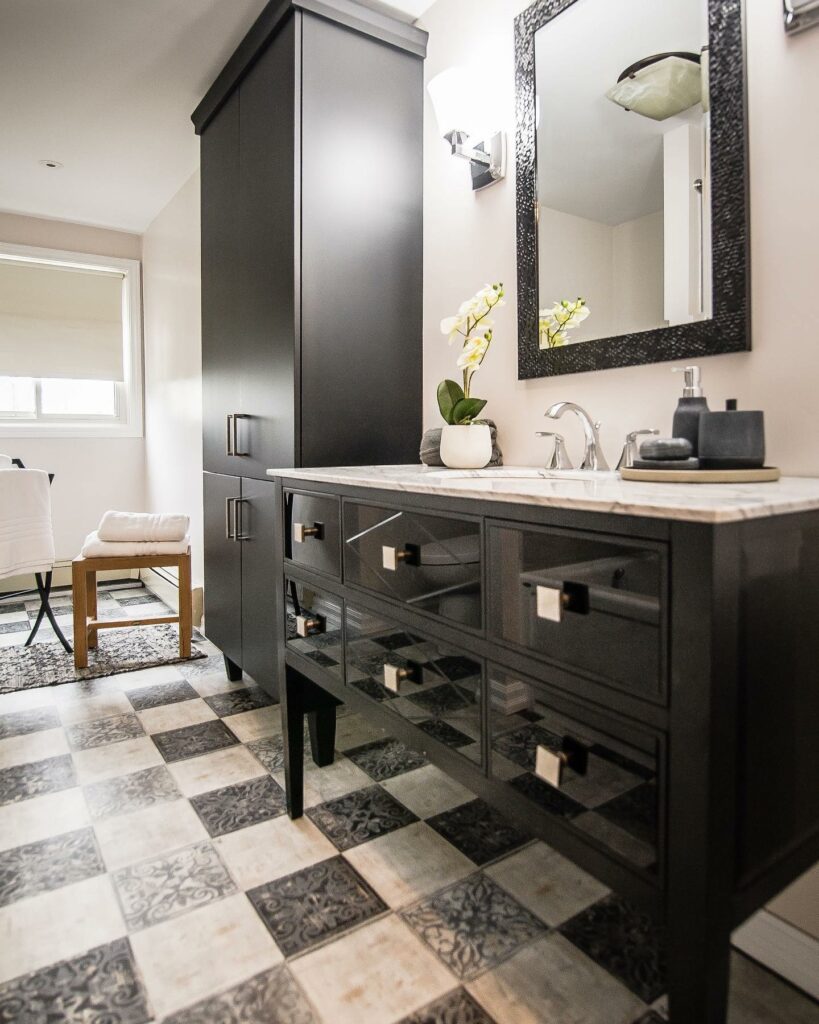When it comes to bathroom renovations, one of the most important decisions you’ll make is choosing the right flooring. Not only should your floors match your vision, but they should also be durable, water-resistant, and minimize the risk of slipping. With so many flooring options available, it can feel overwhelming, making it difficult to make a choice. To help you make an informed decision, we’ve listed some of the best flooring options for your bathroom, along with their pros and cons.
Porcelain Tile
Porcelain tile is the best option for homeowners looking for water-resistant flooring. It is waterproof which makes it impervious to water damage. Additionally, porcelain tile comes in various styles and designs, including realistic stone looks, which makes it easy to incorporate into any bathroom design.
Pros of Porcelain Tile
- Waterproof
- Beautiful designs and styles
- Realistic stone appearance
Cons of Porcelain Tile
- Hard and cold on the feet
- Difficult to install
- Requires a levelled subfloor
- Grout can crack if not installed properly by a professional
Ceramic Tile
Ceramic tile is another great option, but it is a more fragile product than porcelain. If you choose ceramic, you’ll need to ensure that the product you choose is made to be used for flooring, and not just for walls. Unlike porcelain, ceramics are softer, which makes them easier to work with but also makes them more fragile. These types of tiles come in smaller sizes than ceramic.
Pros of Ceramic Tile
- More affordable than porcelain tile
- Easier to work with than porcelain tile
Cons of Ceramic Tile
- Fragile
- Smaller in size
- Not as water-resistant as porcelain tile
Vinyl Flooring
When it comes to vinyl flooring, there are three main types to consider: sheet vinyl, vinyl tile, and click floating vinyl. Overall, all types of vinyl are great for families with young children or adults who may struggle with balance issues, as it is a softer surface in the event of slips or falls. They are all great options when looking for an affordable and practical option, without compromising on appearance. Here are the pros and cons of each:
Sheet Vinyl
Pros of Sheet Vinyl
- No seams or joints that can let moisture in
- Water-resistant
- Affordable
- Comes in a wide range of styles and designs
Cons of Sheet Vinyl
- Installation can be difficult
- Requires a perfectly smooth subfloor
Vinyl Tile
Pros of Vinyl Tile
- Can be grouted or not, depending on the desired look.
- Easy to install
- Water-resistant
Cons of Vinyl Tile
- Not as soft underfoot as sheet vinyl
Click-Floating Vinyl
Pros of Click-Floating Vinyl
- Easy to install
- Soft underfoot
Cons of Click-Floating Vinyl
- Cannot be grouted
- Not attached to the subfloor, which makes it difficult to finish the edges around tubs and showers
Choosing the right bathroom flooring can feel like a daunting task but, with this guide, you’ll be able to make an informed decision that best suits your needs. Whether you opt for porcelain tile, ceramic tile, or vinyl flooring, you can rest assured knowing that you have chosen a flooring option that is durable, water-resistant, and safe. If you have more questions about choosing flooring for your renovation, contact our team, or visit our showroom!


